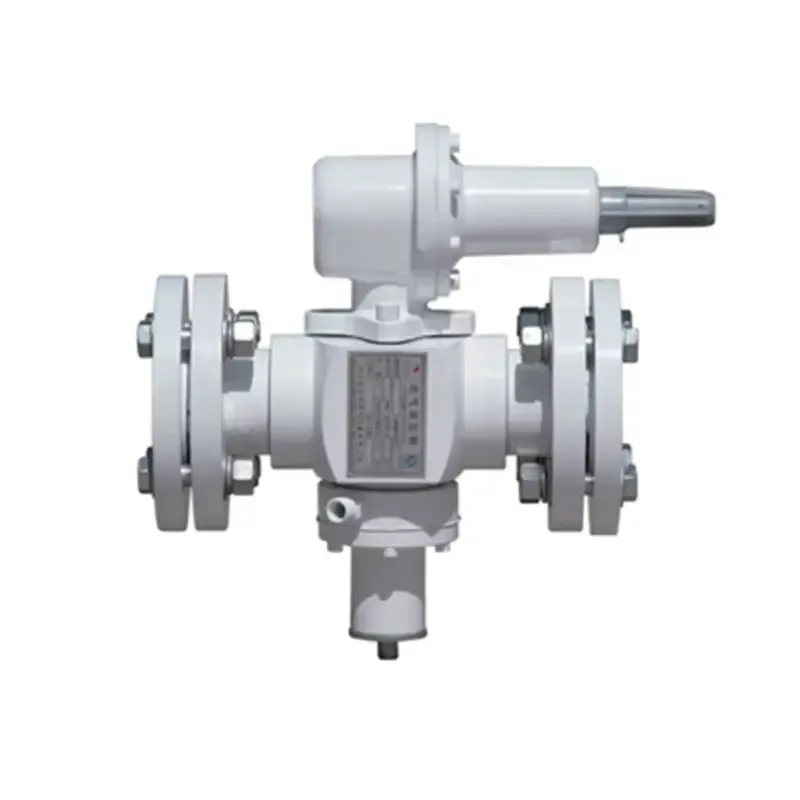
Dec . 15, 2024 02:07
Back to list
natural gas heat exchanger
Understanding Natural Gas Heat Exchangers
Natural gas heat exchangers play a crucial role in various applications, including heating, cooling, and energy transfer processes in industrial and residential settings. These systems are designed to efficiently transfer heat between two or more fluids without mixing them, making them essential for optimizing energy usage and operational efficiency in a variety of processes. This article delves into the fundamental aspects of natural gas heat exchangers, their types, applications, and benefits.
What is a Heat Exchanger?
A heat exchanger is a device that facilitates the transfer of heat from one fluid to another, maintaining physical separation between the fluids. In the context of natural gas, these heat exchangers are pivotal in processes where gas needs to be heated or cooled, making them vital for energy generation, manufacturing, and HVAC (heating, ventilation, and air conditioning) systems.
Types of Natural Gas Heat Exchangers
There are several types of heat exchangers commonly used in natural gas applications, including
1. Shell and Tube Heat Exchangers This is one of the most widely used types in natural gas applications. It consists of a series of tubes, with one set carrying the natural gas and the other carrying the heating or cooling fluid. The heat exchange occurs through the walls of the tubes.
2. Plate Heat Exchangers These devices consist of multiple thin plates stacked together, creating channels for fluid flow. They offer a large surface area for heat transfer in a compact design, making them ideal for applications where space is at a premium.
3. Air-Cooled Heat Exchangers These systems use air as the cooling medium. They are particularly useful in remote locations where water may be scarce or in applications needing high reliability without the requirement for water supply.
4. Double-Pipe Heat Exchangers This simpler design consists of one pipe inside another. The natural gas flows through one pipe, while a different fluid flows through the annular space. This type is often used in smaller applications where efficiency is still required.
Applications of Natural Gas Heat Exchangers
Natural gas heat exchangers are versatile and find applications across several industries
natural gas heat exchanger

- Power Generation They help in the efficient conversion of thermal energy into electrical energy by pre-heating gas before combustion or recovering waste heat from exhaust gases
.- Chemical Processes In chemical manufacturing, heat exchangers facilitate the heating or cooling of reactants at precise temperatures, ensuring optimal reaction conditions.
- Building Heating In residential and commercial buildings, heat exchangers are employed in furnaces and boilers to provide efficient heating, utilizing natural gas as a fuel.
- Air Conditioning Systems They play a significant role in HVAC systems, facilitating the transfer of heat between air and refrigerants, thus ensuring comfort in indoor environments.
Benefits of Natural Gas Heat Exchangers
The benefits of using natural gas heat exchangers include
- Energy Efficiency They maximize energy transfer, reducing fuel consumption and operational costs.
- Environmental Benefits With an efficient heat transfer process, these systems can help lower greenhouse gas emissions.
- Versatility and Durability They can be designed for a wide range of operating conditions and are often built to withstand harsh environments.
- Improved Performance By maintaining optimal temperatures, heat exchangers improve the overall performance and longevity of equipment.
Conclusion
Natural gas heat exchangers are indispensable components in many energy and industrial processes. Their ability to efficiently transfer heat not only enhances energy utilization but also contributes to sustainability efforts across various sectors. As industries continue to prioritize energy efficiency and environmental responsibility, the importance of these systems will only continue to grow. Understanding their operation and selecting the right type of heat exchanger is essential for maximizing their benefits in any application.
Latest news
-
Safety Valve Spring-Loaded Design Overpressure ProtectionNewsJul.25,2025
-
Precision Voltage Regulator AC5 Accuracy Grade PerformanceNewsJul.25,2025
-
Natural Gas Pressure Regulating Skid Industrial Pipeline ApplicationsNewsJul.25,2025
-
Natural Gas Filter Stainless Steel Mesh Element DesignNewsJul.25,2025
-
Gas Pressure Regulator Valve Direct-Acting Spring-Loaded DesignNewsJul.25,2025
-
Decompression Equipment Multi-Stage Heat Exchange System DesignNewsJul.25,2025

